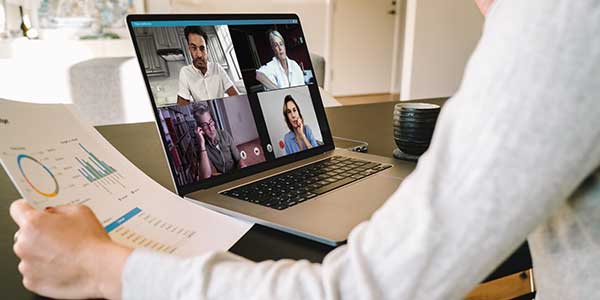
Digital StrategyTheme 2: A better Business As Usual
The development, renewal and maintenance of core university operations to meet future need is key to the delivery of our Digital Strategy.
Our core systems support the University’s activities and must be effective, efficient, and intuitive. They will be designed around user need, informed by process re-design, and allow iterative development over their lifespans.
Our systems will be designed to be easy to use for all, and to automate repetitive actions to free staff time for value added activities. We will ensure that all staff have the necessary skills in the use of the systems needed for the performance of their roles and are able to expand their digital skillset. This will enable us to maximise the opportunities of our digital transformation.
Get in touch
If you'd like to get in touch, email us: digital-strategy@strath.ac.uk

2.1: Robust, reliable, secure and flexible
Our systems are robust, reliable, secure, and flexible.
They will be designed to maximise access and availability regardless of location.
We will achieve this by:
- investing in our Cyber Security provision (including training/awareness);
- having a robust, resilient, flexible and adaptable infrastructure;
- designing a systems architecture to allow for data transfer and continuous improvement;
- having adequate storage to meet the requirements of open access and trusted research.

2.2: Accessible
Our systems are designed to be accessible to all users, regardless of location, device, ability and circumstances.
We will achieve this by:
- meeting legal accessibility standards;
- making systems easy and intuitive to use;
- having adaptive technologies in place;
- developing device agnostic web-based interfaces;
- having a single point of entry to all of our systems and services.

2.3: New ways of working
Our digital technology creates an environment that promotes a culture of innovation, collaboration, and facilitates new ways of working and interacting with Strathclyde.
We will achieve this by:
- designing agile systems to support high-quality, flexible business processes;
- utilising workflow and automation technology;
- providing digitally enhanced teaching and working environments;
- developing our systems and processes based on user-centred design principles.

2.4: Artificial Intelligence
We will make effective use of Artificial Intelligence and Machine Learning in university operations.
We will achieve this by:
- identifying opportunities to automate operational processes;
- providing personalised experiences to staff and students;
- enabling the university to identify areas of concern and take proactive action;
- predicting activity, space and resource use;
- augmenting the student experience through targeted intervention.

2.5: Smart Campus
We use digital technology to effectively manage our estate and to optimise campus utilisation.
We will achieve this by:
- using technology to effectively and efficiently manage our estate;
- modelling and monitoring space use to inform our campus operations;
- providing location specific information via the Strath App;
- providing 3D visualisation of buildings and campus with information tags;
- introducing smart timetabling, including allowing for transition time and mobility issues.

2.6: Sustainable
We are mindful of our environmental responsibilities in all areas of our digital development and will support the university’s strategic sustainability ambitions.
We will achieve this by:
- building intelligent use of energy into our data centres;
- responsibly managing the lifecycle and disposal of our equipment;
- utilising smart building control technologies;
- enabling sustainable business practices;
- building environmental impact assessments into all digital business cases.

2.7: Consistency of approach
Our systems offer a consistent, quality, user-centred experience, with personalisation as required.
We will achieve this by:
- removing unwarranted duplicate systems and processes;
- adopting common processes and standards;
- implementing a common data structure for use across the organisation;
- having a consistent and robust approach to cyber security;
- developing core services to reflect specialist needs where required.

2.8: Upskilling staff
Our staff are supported to develop their digital skills, to make best use of the technology and data available to them.
We will achieve this by:
- including the evaluation of digital skills in our recruitment and induction processes;
- regularly assessing the digital maturity of staff and developing plans to address planned needs;
- building our in-house training capability and developing our in-house training materials;
- providing access to external courses;
- signposting users to in-house “how to” guides and resources.